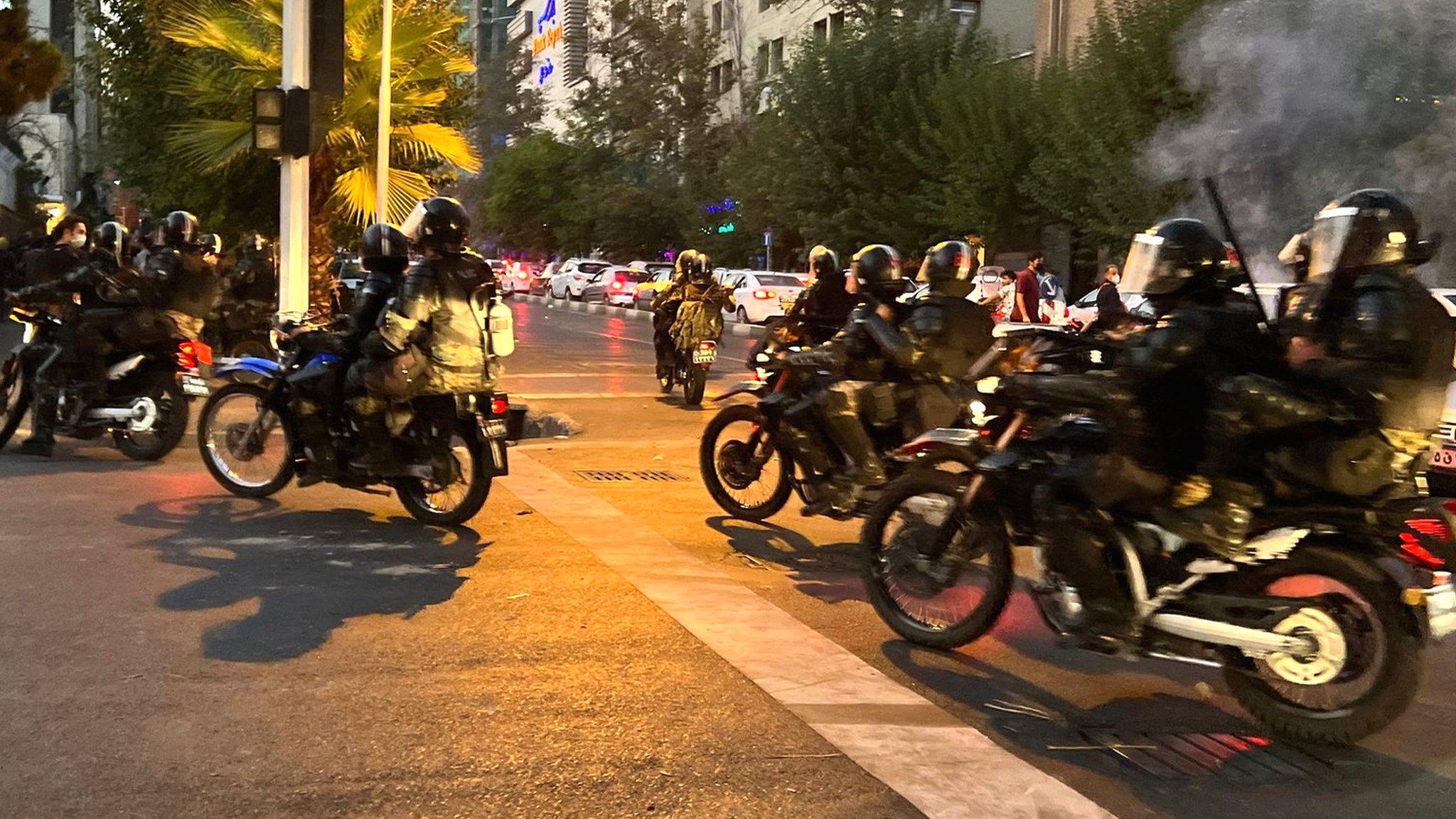Iran protests: Racist slurs on death memorial in Cardiff
- Published
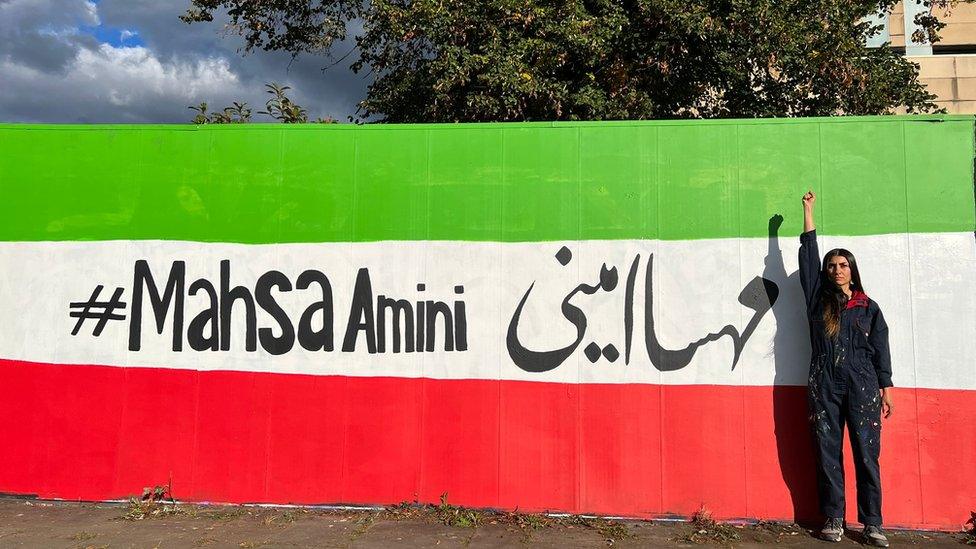
Sahar, 36, was born in Iran, and lived there until the age of 29
A Cardiff mural commemorating the death of a 22-year-old woman in police custody in Iran has been vandalised.
Sahar Saki, who created the artwork, said: "I'm not going to give up".
The piece on Millennium Walk paid tribute to Mahsa Amini, who died in custody earlier this month after being arrested by morality police in Tehran.
She had been accused of violating strict laws requiring women to cover their hair and her death has sparked protests across Iran.
Racist slurs were discovered the day after a solidarity march in Cardiff that began in front of the artwork, next to the Principality Stadium.
Ms Saki, 36, a Cardiff-based designer and artist, has been repainting the work, and said the encouragement of local people had kept her going.
"I'm tired, but people are bringing me ladders, equipment, buying snacks, helping, and supporting".
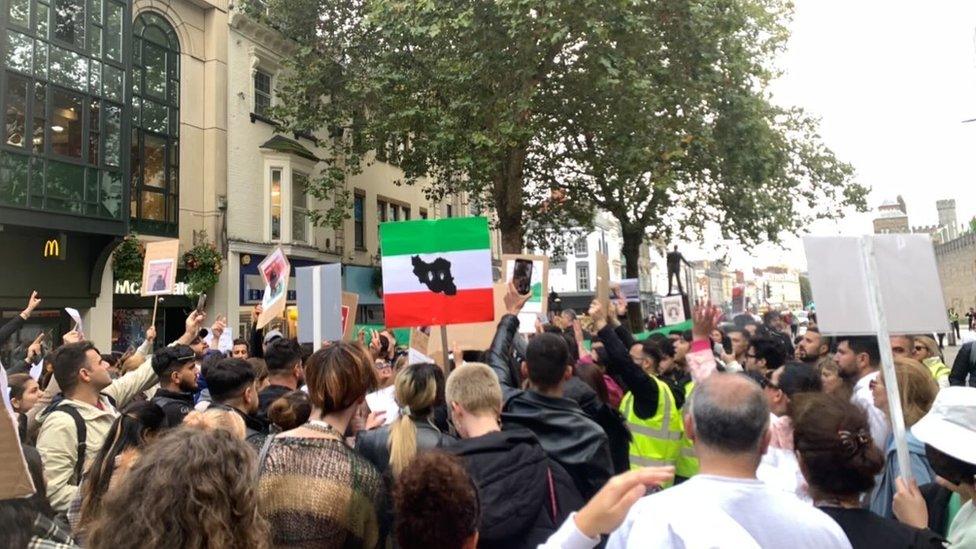
Protesters marched in Cardiff city centre on Saturday in support of demonstrators in Iran
The mural will also now be extended to include tributes to those killed in the protests in Iran which have followed Ms Amini's death.
Speaking before the vandalism, she said: "I'm feeling really powerless right now. And sad and upset and angry."
"I think it's the case for a lot of Iranians because we are living here. But all our heart and our soul is there. It's a really tough time for us."
"It reminds me of the death of George Floyd. That provoked a protest against racism, and this is about sexism".
'Using my art as a weapon'
She woke at 4am to paint the mural and said it "started with an idea of me trying to use my art as a weapon. I was watching people sharing stuff on social media.
"Some artists singing, people dancing, people doing different stuff. And I felt really useless. And I thought, oh, maybe I can make art or a piece to show my support to my Iranian friends and my community."
She called on the community of Welsh artists to join her in raising awareness on the protest movement in creative ways.
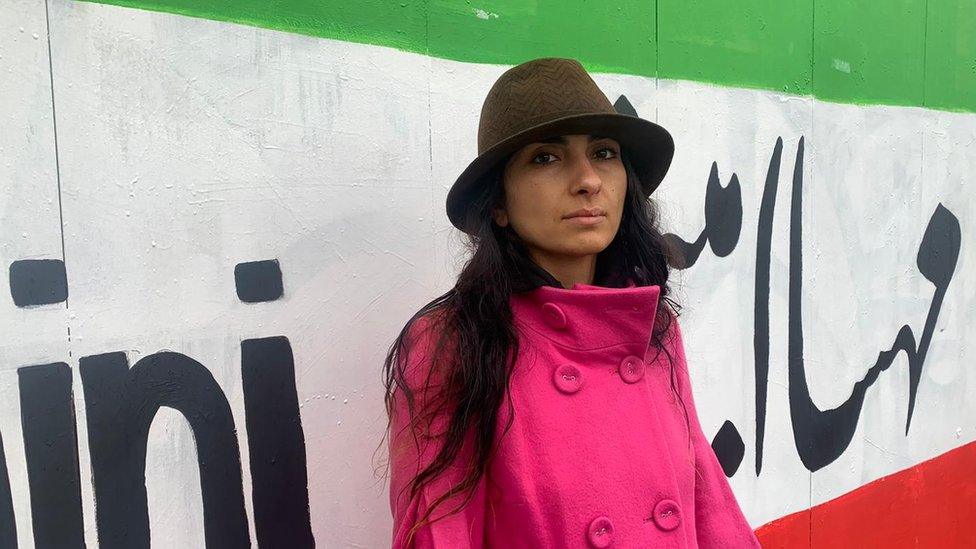
Sahar Saki is undeterred by racist vandalism, as she plans to continue her artwork to include a memorial for protestors killed in Iran.
"I need help. We need support right now. And I thought as an artist, how can I do that?
"And then I remembered I have a really great community here in Cardiff or even in Wales. And art is a really powerful tool I think, that people use can use for making awareness."
"I saw it as a mural at the start. After a few days, it became a special place for Iranians. The community came here a few times, and protested here from this point.
"It's getting more important for people. It's not just my work, this is something for everyone in Cardiff."
'Hijab was never the problem'
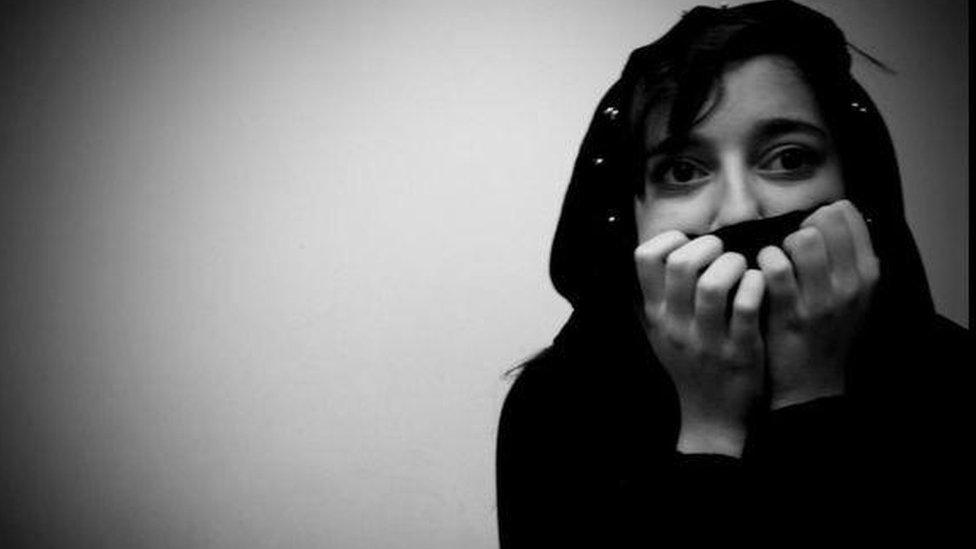
Ayeshah took these photos when she was 16, as part of her GCSE art project titled 'Identity'.
Other people in Wales from both Iranian and artistic backgrounds have also voiced their concerns.
One, Ayeshah, 29, said the protests related to control over women's bodies and choices. "The hijab was never the problem. With the freedom of choice the hijab, and the spirituality found in faith, is beautiful".
Ayeshah joined Sahar's call to raise awareness artistically, because she had seen "Western discourse" that focused on veiled women.
"Individual Muslims are not to blame. The problem isn't faith. The problem is control over other people's bodies and choices".
Zainab, 25, which is not her real name, was born and raised in Newport, and visits family in Iran every summer.
"Some people are using Mahsa's death to condemn Islam and hijab altogether, which isn't right at all. I think it's equal to how China is treating their Muslims for example, how India is forcing women to take their hijabs off, and the hijab ban in France".
Shah Rahmani, 48, from Swansea, left Iran as a political refugee and has lived as a British citizen for 14 years. He said it was "still petrifying" even for people who have left Iran.
"It's heart-breaking. We're being disconnected to family there because they shut down the internet.
"Iranian women are leading protests, but men are supporting them with this too. It started with Mahsa Amini, but it's about freedom more widely. Iranian people are uniting over this."
- Published3 October 2022
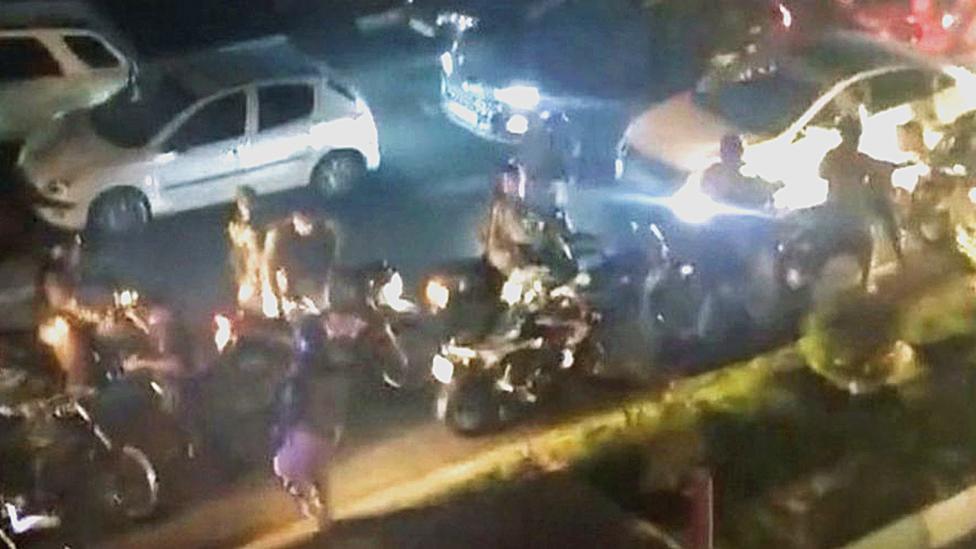
- Published19 September 2022
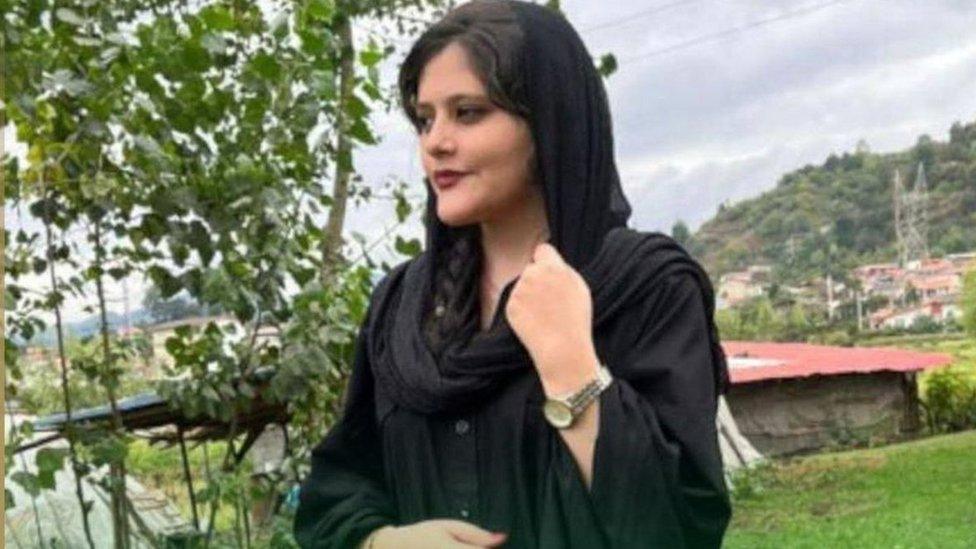
- Published29 September 2022
